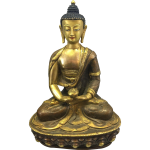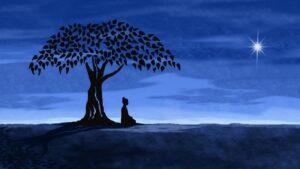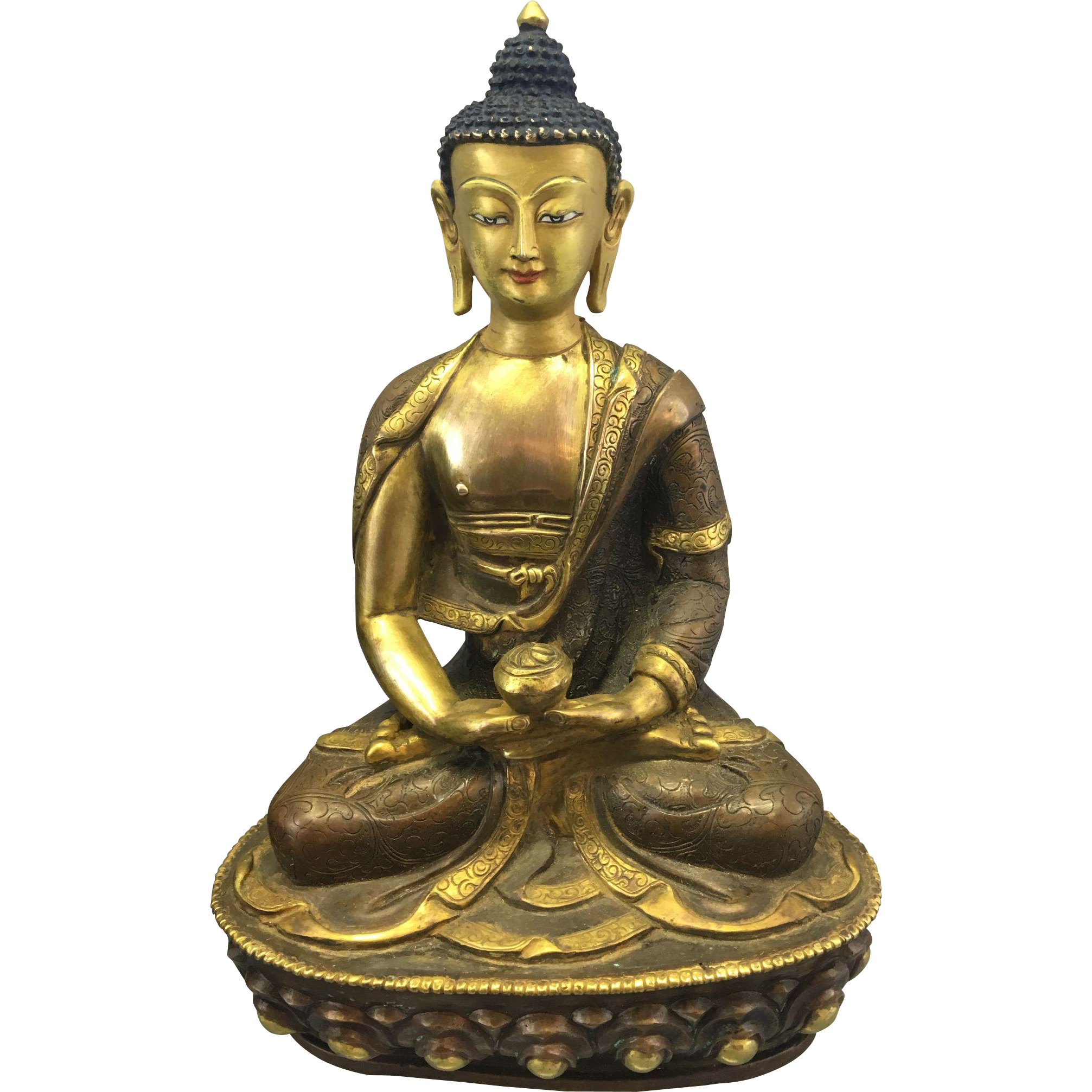Welcome to our fifty second online suggested practise for the week and our first broadcast for Kettering General Hospital. You can view the recording by following the link below. We are now broadcasting a live teaching each Monday evening. If you would like to participate please contact us using the contact form on the homepage.
1.0) If you feel so inclined, begin by reciting the usual prayers (please follow below links for text). Alternatively, try to think or articulate a wish for all beings to achieve liberation from suffering, etc .
Four Thoughts: contemplating each in turn – http://northantsbuddhists.com/the-four-thoughts/
Refuge Prayer: twice in Tibetan, once in English – http://northantsbuddhists.com/the-refuge-prayer/

2.0) What is Buddhism? – Presented by Bob Pollak

Buddhism is not a Club. ‘Buddha’ means the awakened state of one’s own mind. Buddhism is how to awaken the mind, or the method to awaken the mind. So Buddhism is not a sect; Buddhism is not a kind of club; Buddhism is not an institution; Buddhism is the state of one’s own mind. This state of one’s mind is called ‘pure state of one’s mind’, Buddha Mind, which is less negative or less active… (Akong Tulku Rinpoche, The Essence of Buddhism: A Simple Explanation)
Buddhism is not a collection of views. It is a practice to help us eliminate wrong views. (Thich Nhat Hanh)
Buddhists seek to find the Buddha Mind through meditation and various practices.
Buddhism is a spiritual tradition that focuses on personal spiritual development and the attainment of a deep insight into the true nature of life.
Buddhism is a path, not purely a belief system. It is a practical way of training ourselves how to feel and experience in a way that reduces our suffering, and increase our happiness (Ringu Tulku Rinpoche – RTR)
Buddhism is about helping people to open up to their true nature. Our true nature doesn’t involve being disturbed or being unhappy. If it were, we’d be content in those states of mind and would be satisfied or at least accepting feeling miserable. Rather, our true nature is peaceful, compassionate and joyful. And, feeling relaxed in that. (RTR)
In Buddhism, we believe that every being can become awakened: awakened from ignorance, from all the problems and sufferings of our life. This is possible because the pristine, real, essential true nature of our mind is actually already present. We may not have realised it, but it is there. It isn’t diluted or flawed, impure or bad, ignorant or dark. Our true nature is very pure. (RTR)
the Buddhist path can be summed up as:
1. Leading a moral life, (right action; right speech; right livelihood)
2. Being mindful and aware of thoughts and actions (right effort; right mindfulness; right concentration), and
3. Developing wisdom and understanding (right understanding and right thought)
The Buddha taught that if we allow ourselves to relax and take a mental step back, we can begin to recognize that all these different thoughts -that include feelings, sense of self, emotions, sensations and perceptions – are simply coming and going within the context of an unlimited mind, which, like space, remains fundamentally unperturbed by whatever occurs within it. (Mingyur Rinpoche)
Buddhism does not require blind faith or belief in a supernatural being. It is about developing confidence based on knowledge. The Buddha said, ‘Don’t take my word for it; try it and see for yourself and see what happens.’ Basically, suck it and see….
Buddhists should not pray to be saved, but should rely on themselves to win freedom…..
“I don’t know anything about consciousness. I just try to teach my students how to hear the birds sing.” Shunryu Suzuki
—=–0——
2.0) Who was Buddha – Presented by Geoff Warren

Originally born a wealthy prince, he left it all behind to pursue the path of truth when he saw the poverty and sickness beyond his palace walls. This also led him to drop his birth name, Siddartha Gautama..
At the time of Buddha’s quest for enlightenment, there were many religious practices that called for either intense overindulgence in the senses, or strict deprivation such as weeks of fasting. Realizing that neither were truly beneficial, he devised what would later be known as “The Middle Way” to enlightenment…a balanced approach that emphasized inward rather than outward renunciation.
To achieve enlightenment, Young Siddhartha vowed to sit under a fig tree and meditate until he transcended suffering. At the end of an extremely long meditation and mental battle with Mara (the god of desire), he became awakened and was then known as the Buddha.
Practicing Buddhists view Buddha as a teacher and not a god or avatar.
Buddha taught and travelled his entire life until the age of 80 when he passed away. His final request of his followers was this: “All component things in the world are changeable. They are not lasting. Work hard to gain your own salvation.”
—–0——
